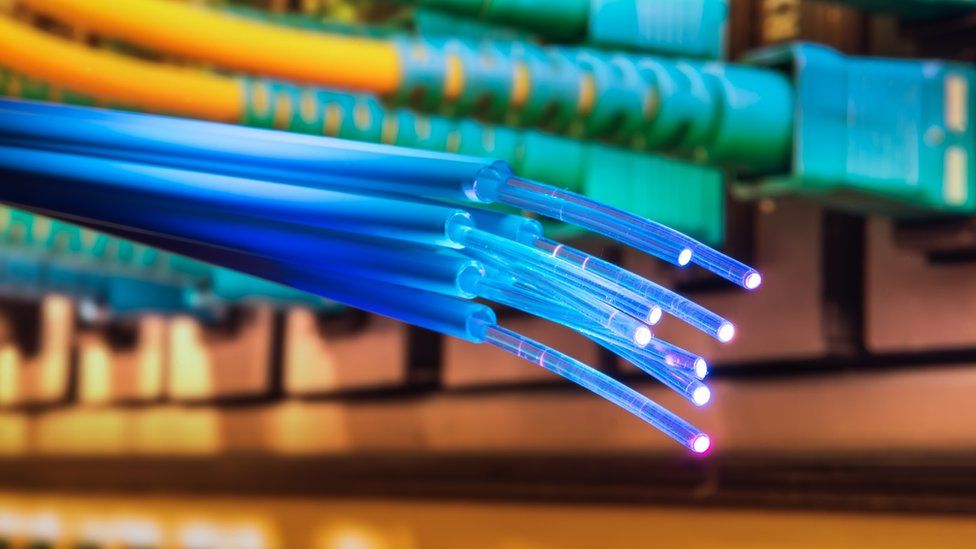In today’s age, the need to stay connected to the internet is required. But what is the best way to stay connected all the time?
You probably know several types of internet services. These include DSL, cable internet, fiber optic, broadband, or WiFi connectivity. These are all popular kinds of internet services. Thanks to technological advancements that allow people to access the internet through several means.
Broadband and WiFi connections are the two common internet technologies that everybody heard of. Most often, both terms are used interchangeably. Whether you connect broadband or WiFI, it is important to understand the difference between WiFi and broadband connection. Though these technologies are closely related, there are also a lot of misconceptions out there. Continue reading and we will walk you through everything you need to know about broadband vs WiFi.
Table Of Content
- What Is WiFi Internet?
- What Is Broadband Internet?
- Is WiFi Differ From The Internet?
- Is Broadband A Better Choice?
- What Is The Difference?
What Is WiFi Internet?
WiFi is a user-friendly name. It is a part of wireless network protocols to access wireless internet. WiFi devices can exchange data through radio waves. WiFi is high-speed internet connectivity without any use of cables. Modern routers usually act as WiFi access points. As long as the devices are connected to the modem router, the WiFi extenders and mesh systems work as WiFi access points. These access points carry the bandwidth which approaches a router and then provides Internet connectivity to other devices connected.
Data transmission through WiFi is bi-directional. This means, a connected device does not only receive from the WiFi access point but also transmits data back to it.
What Is Broadband Internet?
Broadband is a high-speed internet connection service providing uninterrupted internet service. A telephone line is used for this type of internet connectivity. It can be connected via ADSL, fiber optic, satellite, or mobile services (4G, 5G, LTE). Despite the connection type, the technology involves a wide bandwidth data transmission, supporting multiple signals, and other traffic types.
A broadband connection works similarly to a dial-up connection. Mobile broadband and satellite internet eliminate the need to run cables from your home to a distribution node or cabinet on the street to connect to the internet. You still need a modem router to connect devices in your home to the internet, but you no longer need a physical copper or fiber optic connection. An ethernet cable makes it possible for you to connect devices like desktops, laptops, smart TVs, tablets, and more to modem routers. The point is that you can still have broadband internet in your house without a Wi-Fi network.
Is WiFi Differ From The Internet?
Most of the time people get confused with broadband and WiFi connections. Sometimes, the devices are connected to the wi-fi network while they are not connected to the internet. This is mainly because the WiFi network is not reliant on the internet. Even when the devices are not connected over WiFi, they can still communicate. The situation relates to tuning the right channel while there is no broadcasting service to be delivered.
WiFi is a method of accessing the internet without having a physical connection. This is an important distinction. However, in the old days, there was a specific need for physical cables to connect to a network. TodayA router or a combination of routers and modems allows one to communicate with other devices by a short-range wireless connection.
Is Broadband A Better Choice?
A broadband connection connects your device to a high-speed internet connection. However, it requires a physical device and usually a telephone line. There are various broadband connection services with wireless connectivity. It was difficult to use the broadband service earlier, but the channels are divided now. You can have a telephone and internet at the same time.
If you want to have a smooth internet connection with less network blocking, a broadband internet connection is an obvious choice. Being a pocket-friendly choice, broadband has the capacity to provide high-speed internet connectivity.
What Is The Difference?
WiFi and broadband connections are two separate things. Your internet service provider (ISP) is responsible for fine internet connectivity, reliability, and speed. These are the dependent factors that device internet connectivity. Whereas, the strength of your WiFi signals depends on the wireless router in your home.
WiFi technology is more convenient than broadband internet service. A greater number of devices can connect to one router simultaneously. But a drawback of a WiFi connection is that it has a limited bandwidth, usually within a room or small office. you can also get information about nbn plans compare in Australia.
When it comes to data speed, broadband connections offer faster internet speed than WiFi. WiFi connection is also susceptible to interference while the broadband connection isn’t. However, taking proper care of physical connection is required for a broadband connection to work.
Conclusion
It is clear that both WiFi and broadband connections have their own set of advantages and disadvantages. However, on the basis of the data speed, security, and connection type, you can decide what works best for you. Connect broadband if you want a more secure and consistent internet connection. However, a WiFi connection is much more affordable than a broadband connection.




